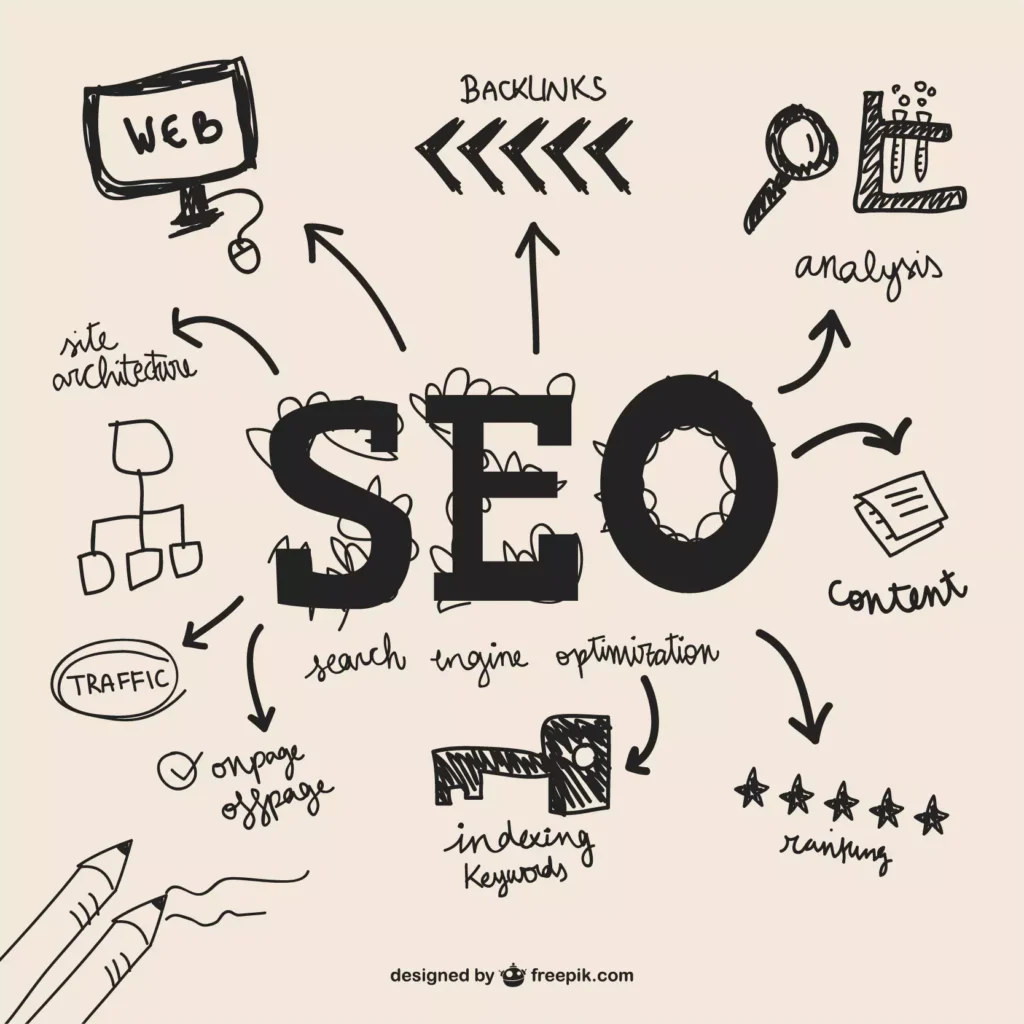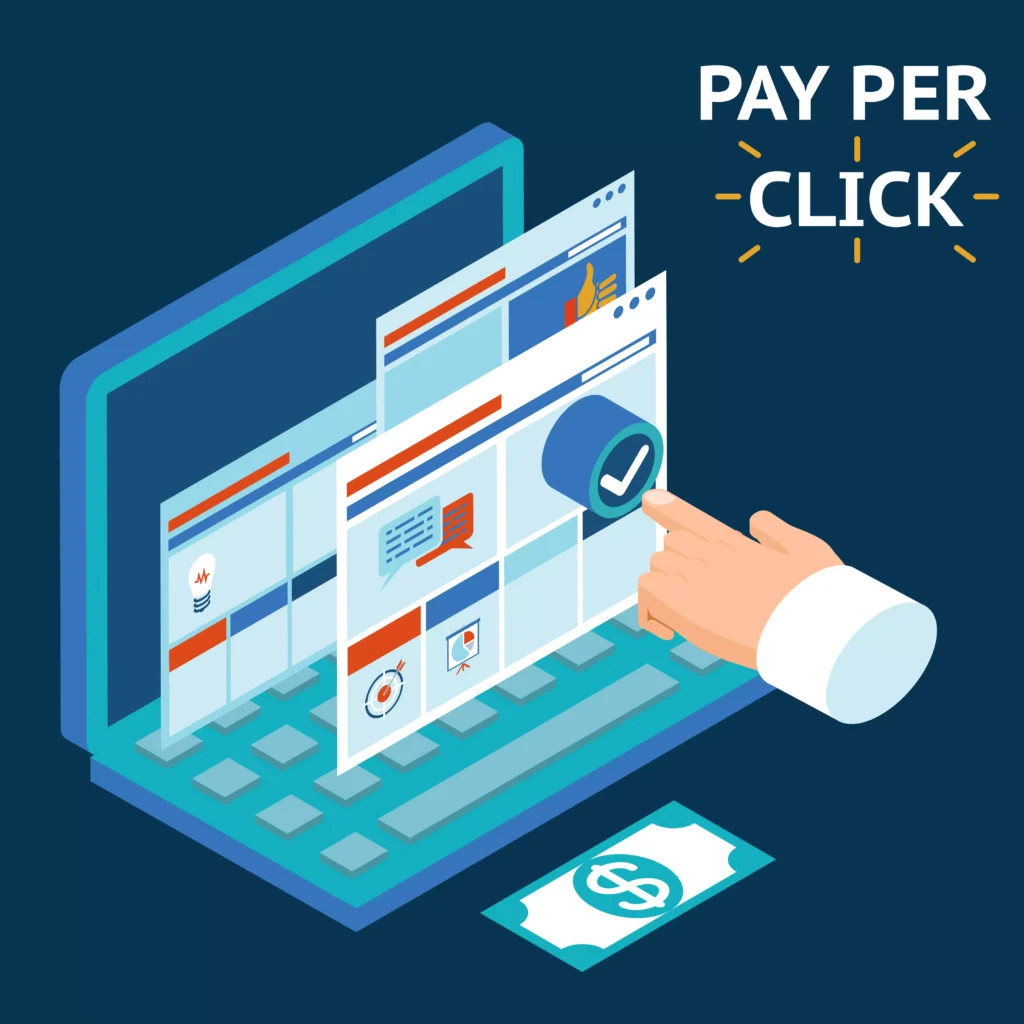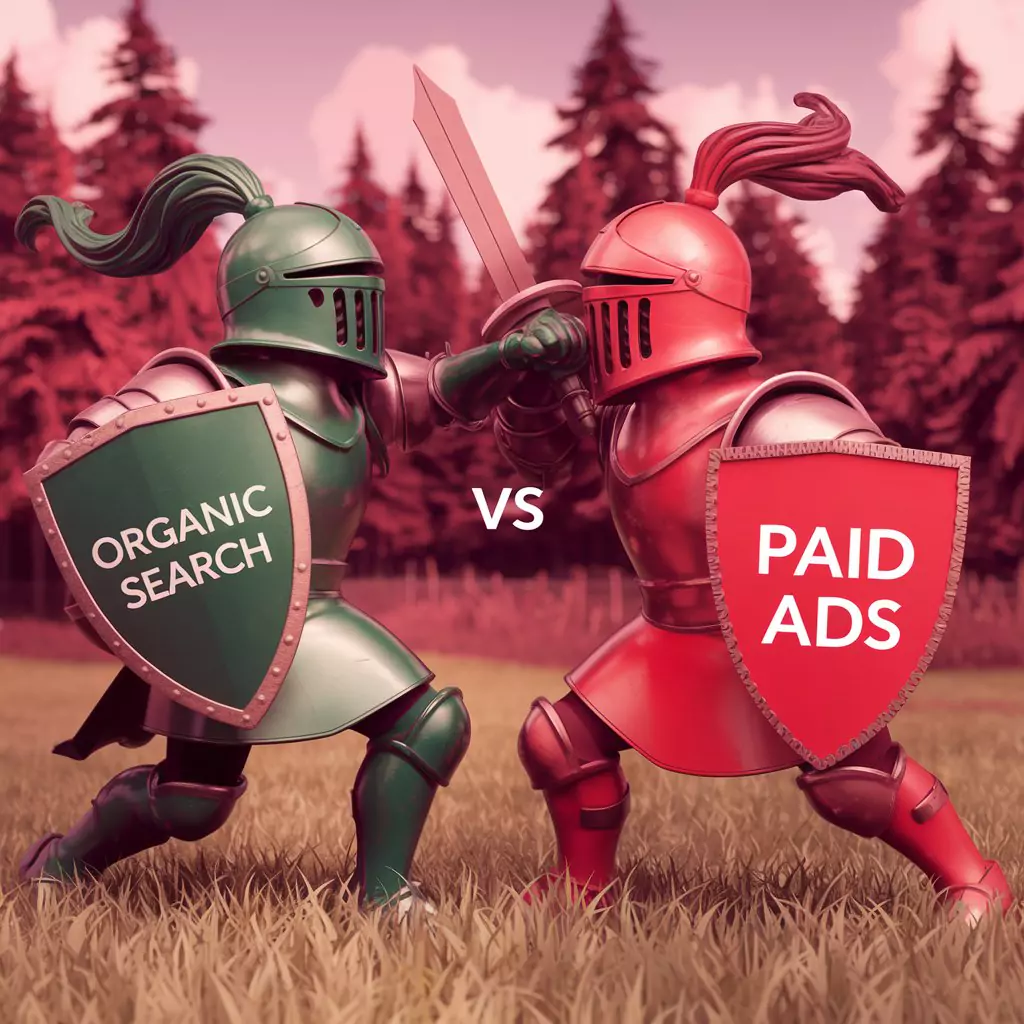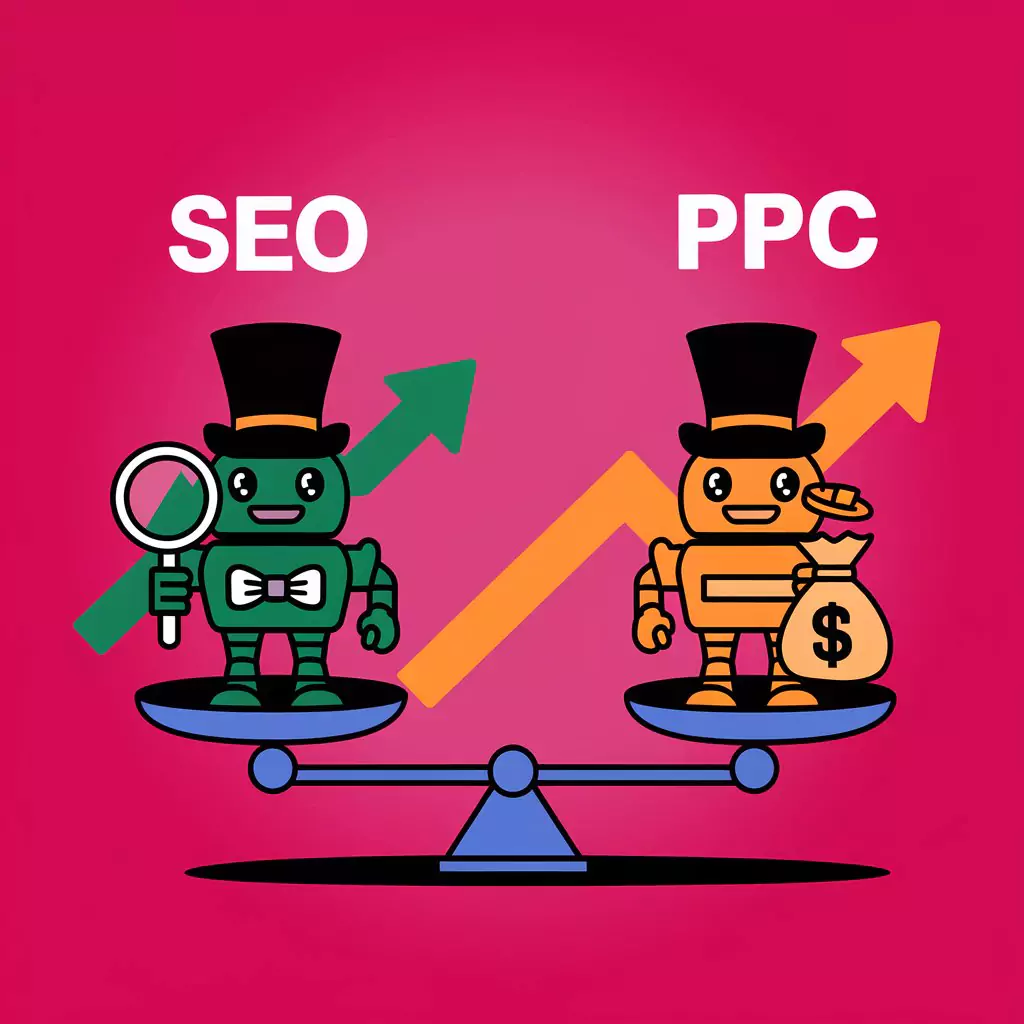In today’s digital-first world, businesses must find ways to stand out online. Two popular strategies for driving website traffic are SEO vs PPC. Both aim to bring more visitors to your site, but they work in different ways.
SEO (Search Engine Optimization) focuses on improving your website’s visibility in search engine results without paying for ads. It’s like planting a tree—it takes time, but the rewards are long-lasting. On the other hand, PPC (Pay-Per-Click Advertising) is like renting a billboard on the busiest road. You pay to get noticed right away.
Understanding the differences, benefits, and challenges of SEO vs PPC is important for choosing the right one for your business. Sometimes, combining them can bring even better results. Whether you’re building a strong foundation with SEO or seeking quick wins with PPC, knowing how they work will help you succeed online.
In this detailed guide, we’ll explore:
- What SEO and PPC mean.
- How they differ.
- Their respective pros and cons.
- Which strategy might work best for your needs.
Let’s dive in!

What Is SEO?
SEO, or Search Engine Optimization, is the art and science of improving your website’s visibility on search engines like Google, Bing, and Yahoo. By optimizing various aspects of your site, you can rank higher in organic (non-paid) search results, making it easier for potential customers to find you.
Key Elements of SEO:
- Keyword Research: Identifying the words or phrases people use to search for your products or services.
- On-Page Optimization: Enhancing your website’s content, meta tags, and headings to align with search queries.
- Technical SEO: Ensuring your site loads quickly, is mobile-friendly, and has proper indexing.
- Content Creation: Publishing high-quality blogs, articles, videos, and other content that answers user questions.
- Backlink Building: Earning links from other reputable websites to increase your site’s authority.
For instance, if someone searches for “best digital cameras under $500,” an optimized website with relevant content is more likely to appear on the first page of search results.
What Is PPC?

PPC, or Pay-Per-Click Advertising, is a model of online advertising where businesses pay a fee each time someone clicks on their ad. These ads are prominently displayed at the top of search engine results pages (SERPs), marked as “sponsored” or “ad.”
How PPC Works:
- Keyword Targeting: Like SEO, PPC also requires keyword research to match ads to user searches.
- Bid System: Advertisers bid on specific keywords; the higher your bid and ad quality, the better your placement.
- Cost Per Click (CPC): You only pay when someone clicks on your ad.
- Landing Pages: These are tailored web pages where users land after clicking an ad, designed to convert visitors into customers.
For example, a business selling sports shoes might run a PPC campaign targeting the keyword “buy running shoes online.” When users search for this, the ad appears at the top of the results, instantly driving traffic.
SEO vs PPC: A Side-by-Side Comparison
| Aspect | SEO | PPC |
|---|---|---|
| Cost | Free in terms of clicks; costs time | Paid; cost per click |
| Speed | Slow, takes months to show results | Instant results |
| Longevity | Long-term | Short-term |
| Traffic Type | Organic | Paid |
| Control | Less control over rankings | Full control over ads and audience |
| Trust Factor | Higher (not marked as ads) | Lower (seen as promotional) |
| Click-Through Rate | Typically higher for organic results | Generally lower |

Advantages of SEO
1. Cost-Effective in the Long Run
While SEO requires an investment of time and resources upfront, there are no direct costs for clicks. Once your website ranks well, you can attract visitors without paying for each click.
2. Builds Trust and Credibility
Users tend to trust organic search results more than paid ads. A high organic ranking signals to users that your site is reputable and authoritative.
3. Long-Term Results
Unlike PPC, where traffic stops when you stop paying, SEO provides sustainable results over time. A well-optimized page can continue to rank for months or even years.
4. Increases Click-Through Rates (CTR)
Studies show that the majority of users click on organic results rather than ads, making SEO a great way to attract more clicks.
Disadvantages of SEO
1. Time-Consuming
SEO is a long-term strategy that can take months to deliver significant results. It’s not ideal if you need immediate traffic.
2. Algorithm Dependency
Search engines like Google constantly update their algorithms, which can impact your rankings. Keeping up with these changes requires effort and expertise.
Advantages of PPC
1. Quick Results
With PPC, you can start driving traffic to your website almost immediately. It’s perfect for short-term campaigns or new product launches.
2. Precise Targeting
PPC allows you to target specific demographics, locations, devices, and even times of day, ensuring your ads reach the right audience.
3. Performance Insights
PPC platforms like Google Ads provide detailed analytics, allowing you to measure the effectiveness of your campaigns and make data-driven decisions.
4. Scalability
You can easily scale your campaigns by increasing your budget or targeting additional keywords.
Disadvantages of PPC
1. High Costs
Popular keywords can be expensive, especially in competitive industries. If not managed properly, PPC campaigns can quickly drain your budget.
2. Short-Term Solution
Once you stop paying for ads, your traffic disappears. Unlike SEO, PPC does not provide long-lasting results.
3. Lower Trust Levels
Many users skip over ads, preferring to click on organic results. This can limit the effectiveness of PPC in certain scenarios.

Which Is Right for You?
When to Choose SEO:
- You’re looking for long-term growth.
- Your budget is limited, but you’re willing to invest time.
- You want to build trust and credibility with your audience.
- Your target audience searches for content regularly.
When to Choose PPC:
- You need immediate traffic or are launching a new product.
- You have a flexible budget for paid campaigns.
- Your goal is to promote time-sensitive offers or events.
- You want detailed control over who sees your content.
Can You Use SEO and PPC Together?
Absolutely! Combining SEO and PPC can help you maximize your online visibility and results.
How They Work Together:
- Keyword Insights: PPC campaigns can help identify high-performing keywords, which can then be used in your SEO strategy.
- Retargeting: Use PPC ads to retarget users who visited your site through organic search but didn’t convert.
- Dominating SERPs: With both organic results and paid ads, you can increase your chances of being clicked on.
By leveraging the strengths of both strategies, you can build a comprehensive marketing approach that delivers both short-term and long-term benefits.
Conclusion
SEO and PPC are both powerful tools for driving traffic to your website. While SEO focuses on organic growth and long-term results, PPC delivers immediate visibility and control. The choice between them depends on your goals, budget, and timeline.
If you’re willing to wait for results and prioritize sustainability, SEO is the way to go. On the other hand, if you need quick results or want to support a specific campaign, PPC can help you achieve your goals.
Better yet, consider using both strategies together to create a balanced and effective digital marketing plan.
Ready to boost your online presence? Start by identifying your goals and crafting a strategy that works best for your business!